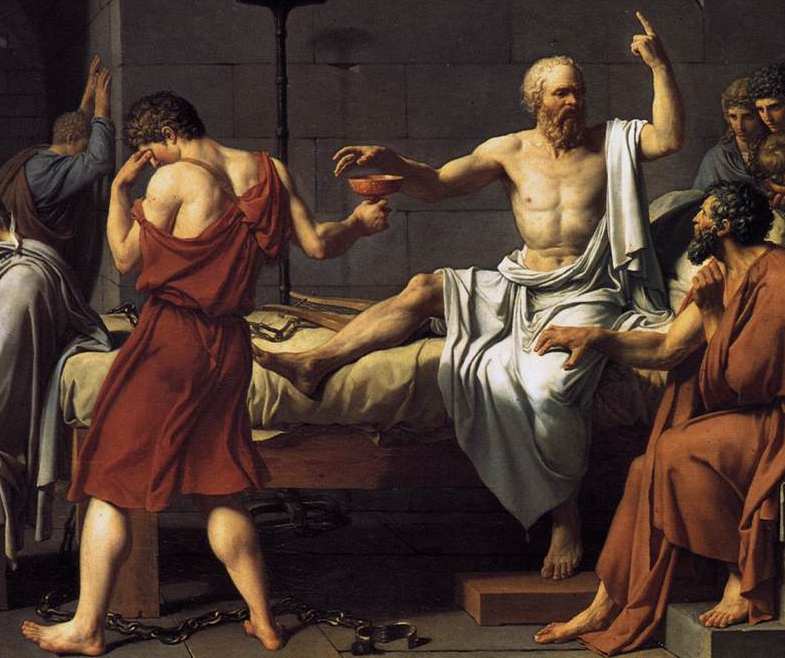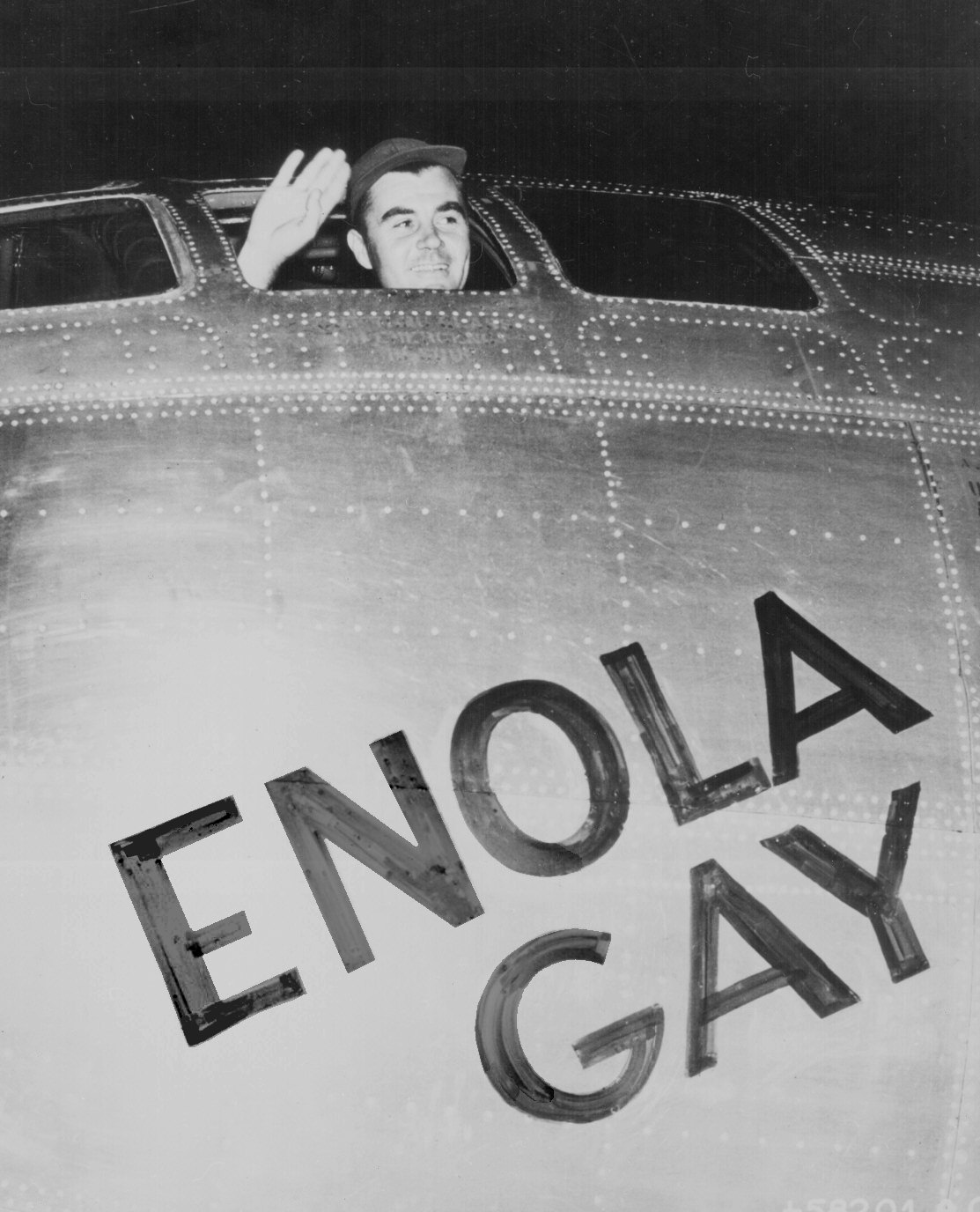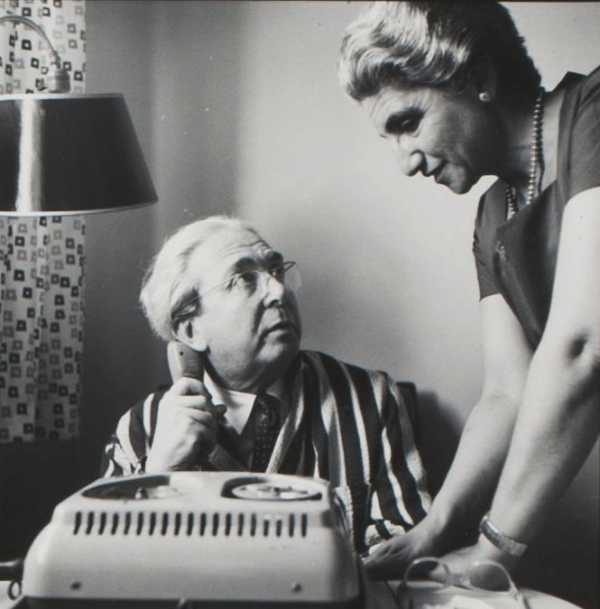There's a scene at the beginning of
Schindler's List where you see the
Shabbos candles lit and burning, then the family fades out of the room, while the candles are left to burn into curls of smoke in an empty and darkened house. Here one minute, gone the next; families, whole neighborhoods, millions of people disappeared. The countries that Leo Szilard and his loved ones lived in while still in Europe - Hungary, Germany, England - were all affected by the war, but it was Berlin that he escaped in the nick of time, right under
new chancellor Adolf Hitler's nose (this is mentioned in the
Atomic song,
A Little Fire). His sensing and foretelling the imminent danger - this time for Jews, dissidents, etc. - became a theme in his life. There's a line that occurs twice from my character, Trude Weiss, "you have an annoying habit of being right" that highlights that ability. If anything, he certainly had a true scientist's sense of hypothesis, not only for predicting nuclear chain reactions, but politics as well. He was also able to convince many of his loved ones to escape before the war. Once in the US and working on the
Manhattan Project, he moved about the United States for years, sometimes living with Trude, sometimes on his own. It was something of a nomadic lifestyle, which some might say was not unknown to Jews for
centuries. When the Hebrews left Egypt, they were also said to wander for forty years. Indeed, there are allusions to
Moses in
Atomic that work both culturally and scientifically. There was no map in either case, literal or figurative.
 |
| I'm guessing they were decidedly not dressed for the Renaissance, though. |
Last week, we had the honor of hearing nuclear science history expert - and award-winning teacher - Kathleen Dwyer (set and lighting designer Rob Lippert's wife) share her fascinating knowledge of and passion for atomic physics. One of the questions director Scott Miller asked was why the Germans had not come up with the bomb themselves. Her response - and I'm paraphrasing - was something to effect of, "well, they got rid of all the people capable of doing it" - in other words, hoisted on their own petard of persecution.
If you don't mind being thoroughly disgusted, search keywords "Jewish," "scientists," and "Manhattan Project." I did so innocently (while writing the last blog), and was shocked to see hateful, paranoid garbage from white supremacist group
Stormfront pop up among the results. Not having clicked on it, I could only assume it was being used as some sort of scare-tactic smear akin to
The Eternal Jew, one of the nastiest pieces of antisemitic propaganda ever conceived
, painting Jews as dangerous and destructive, which is nothing if not ironic. I was merely searching on the idea that Kathleen hit on - several of the prominent scientists that gave birth to atomic physics were indeed Jewish: Einstein, Szilard, Teller, Oppenheimer, among others. Indeed, Germany's loss was the allies' gain...it's especially stomach-turning that those who would carry the Nazi's hateful legacy would twist that contribution in such a way.
In the musical, Trude pointedly and defiantly tries to make time to have shabbos in the states, insisting that they can't take it for granted, having seen the effects of growing antisemitism in Europe. What horror must have been theirs, however - the whole world's, really - upon discovering what the endgame was to rounding up their friends and families back home: an attempt at
utterly wiping out a culture from the face of the earth. In another touching scene in
Atomic, Leo and Trude collapse in disbelief at the news, struggling to grasp that the world they knew is gone, and realizing they cannot go home; there's nothing and no one to go home to. "How can somewhere that's home when you're in it/feel so empty and cold
the next minute?" and "How could we know?" are among the questions they ask. There are no answers. The Holocaust stands out in history as grim and horrific proof that humans can
, and will, do unspeakable things to whole entire populations of people in the name of fear and hatred disguised as nationalism. May we never forget that.
 |
| Four glasses of wine at least? Let's do this. |
Tonight is
Passover, and I have the honor of celebrating at a
seder given by my boyfriend's family. As I might have mentioned in previous blogs, I was born and raised Baptist, so seder isn't something I was brought up with, but I'd like to think I'm doing okay. Heck, I even eat the
gefilte fish! That's big for a gentile. Still, more than just the food, I enjoy hearing the story and the tradition that's thousands of years old. A colleague of my mother's while she taught French and Spanish at Ladue High School, one of the "tribe" himself, once explained to her that all Jewish holidays seem to follow a pattern: "they tried to kill us, but we're still here...let's eat." Passover in a post-Holocaust world reminds us that while many - like Szilard and Weiss - were delivered from harm and obliged to wander, that so many others had their homes, their possessions, their legacies, their very lives erased. So today, we can still celebrate the fact that great minds like Szilard's survived to make their mark.
Chag Sameach (Happy holiday)!













